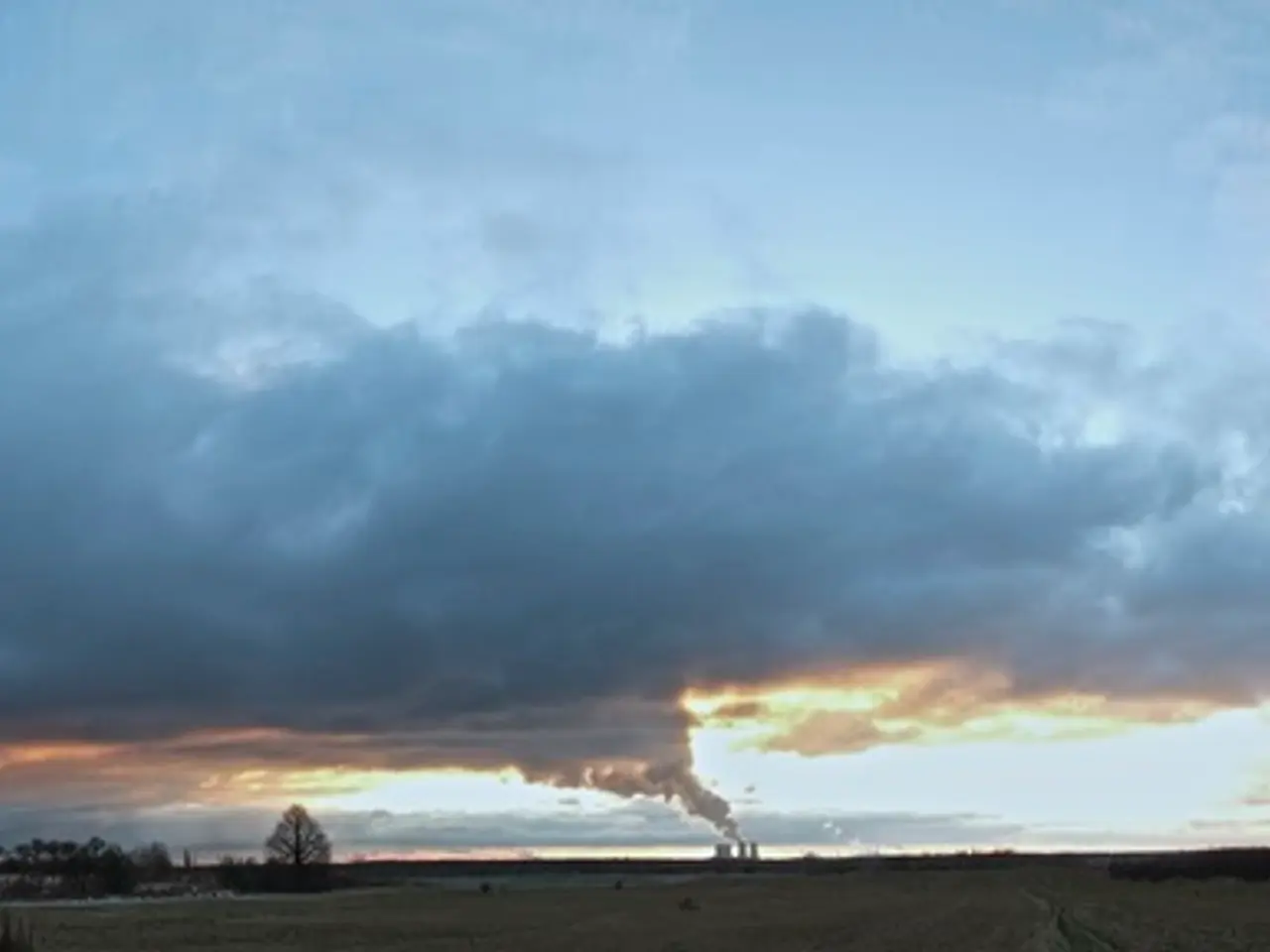Air Pollution Hits Southern Quebec
In the heart of Montreal, the city was enveloped in a haze of poor air quality on Sunday, with levels of fine particles reaching around 60 micrograms per cubic meter. This was a cause for concern, but not as high as the readings in previous weeks. The smog was caused by smoke from forest fires in the Prairies, and Montreal found itself among the five worst cities in the world in terms of air quality on that day [1].
The health authorities issued multiple warnings, urging caution, particularly for vulnerable groups such as the elderly, children, pregnant women, and people with chronic illnesses. The poor air quality was affecting a large part of southern Quebec, from Abitibi to Gaspésie [2].
The immediate symptoms of smog and wildfire smoke include eye, nose, and throat irritation, headaches, coughing, and wheezing. However, the long-term effects are of greater concern, especially for children.
Exposure to fine particulate matter and pollutants during smog and wildfire smoke episodes can lead to worsened respiratory conditions like asthma, decreased lung function, and may influence childhood development and increase the risk of developmental disorders [3]. Long-term exposure is also linked to the risk of lung cancer and possibly neurological diseases such as Alzheimer’s and other forms of dementia in later adulthood [1][3].
Authorities advise minimizing outdoor exposure during smoke events, using well-fitting respirator masks (like N95) when outside, and keeping indoor air clean by closing windows and doors to reduce these health risks [2][4]. Although research on long-term effects from wildfire smoke is ongoing, the precautionary principle supports rigorous protection of children due to their increased vulnerability [3].
Despite the warnings, not everyone seemed overly concerned. Maeva, headed to the Osheaga music festival at Jean-Drapeau park, expressed that she would not miss the festival. Jules Nguyen, who is asthmatic, felt the effects of the smog but chose not to let it affect his plans for the day.
On the other hand, Helène Deschamps, a park regular, changed her routine to avoid deep breathing due to the orange haze in the air. Noémie Bouchard, wearing a t-shirt with Olivia's face on it, admitted feeling a sense of climate crisis fatigue. Karine Gendron, a resident of Saint-Hubert, expressed concern about the need for action to improve the environment.
As the storm front crossed southern Quebec, improvement in air quality is expected by Monday morning. However, the long-term effects of the environmental phenomenon remain a concern for many.
References:
[1] American Lung Association. (2020). The Impact of Wildfire Smoke on Children's Health. Retrieved from https://www.lung.org/our-initiatives/healthy-air/solutions/wildfire-smoke/impact-on-children.html
[2] Environment Canada. (2021). Air Quality Health Index. Retrieved from https://www.airhealth.ca/aqhi/
[3] Health Canada. (2019). Health Risks Associated with Wildfire Smoke. Retrieved from https://www.canada.ca/en/public-health/services/air-quality-health-index/health-risks-associated-wildfire-smoke.html
[4] World Health Organization. (2020). Health Effects of Air Pollution. Retrieved from https://www.who.int/news-room/fact-sheets/detail/air-pollution
- The health-and-wellness authorities have emphasized the potential long-term effects of wildfire smoke on children's health, citing worsened respiratory conditions, decreased lung function, and increased risk of developmental disorders as concerns.
- Recognizing the short-term symptoms such as eye, nose, and throat irritation, headaches, coughing, and wheezing, environmental science experts warn about the long-term impact of climate change on air quality, linking it to an increased risk of lung cancer and possible neurological diseases like Alzheimer’s and other forms of dementia in adulthood.




